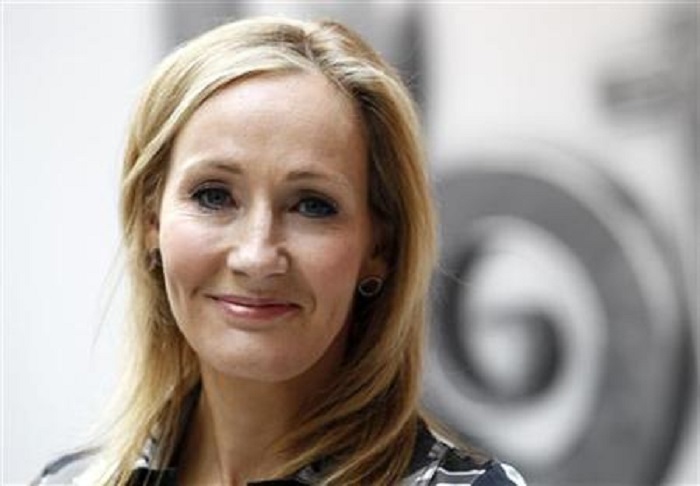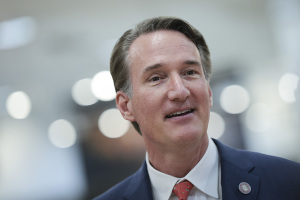JK Rowling warns Scotland's gender identity bill will 'harm the most vulnerable women in society'

Famed Harry Potter author J.K. Rowling is condemning a proposed bill in Scotland law that would amend the process for people to legally change their gender, warning that it will “harm the most vulnerable women in society.”
Rowling, described by critics as a Trans-Exclusionary Radical Feminist (TERF), took to Twitter over the weekend to weigh in on proposed changes to Scotland’s Gender Recognition Reform Bill.
The Gender Recognition Reform Bill, introduced last Wednesday, outlines “the process to get a gender recognition certificate,” which “legally recognises that a person’s gender is not the gender they were assigned at birth, but is their ‘acquired gender.’”
The bill would require the Registrar General for Scotland to grant a Gender Recognition Certificate to any resident of Scotland who “is aged at least 16” and “has lived in the acquired gender throughout the period of three months ending with the day on which the application is made.” The document makes no references to hormone or surgical treatments and/or the biological differences between men and women.
The bill amends “who can apply for a GRC,” “how to make an application” and “the grounds on which an application is to be granted.”
The legislation introduces “different types” of gender recognition certificates that can “be used in different circumstances: “full” certificates and “interim” certificates. It also establishes a policy regulating “appeals and reviews of decisions to grant (or not grant) GRCs” and a process for the “revocation of a GRC and offences in connection with false information being provided in an application.”
The bill overview on the Scottish Parliament’s website describes the current system for obtaining a gender recognition certificate as “intrusive” and laments that the process “can take a long time.”
The Scottish government has cited both factors as having “a negative impact on applicants.”
The Scottish government expressed concern about the fact that “current rules require a medical diagnosis of ‘gender dysphoria’ and supporting evidence with the application” and that “16 and 17 year olds are not currently allowed to apply for a GRC, which the Government believes is a further negative impact on trans young people.”
The revisions will “mitigate” what the Scottish government views as deficiencies in the Gender Recognition Reform Bill.
Angie Harris, a self-described “leftie” and “radical feminist” from Melbourne, Australia, warned of the bill’s implications in a tweet shared by Rowling.
“There is self ID in my city,” Harris stated. “Men are self identifying in to female sexual assault recovery services. Say no, and they take you to the Human Rights Tribunal. Women self exclude. Groups implode. No more services for our most vulnerable women.”
Rowling retweeted Harris’ tweet, expressing concern that “the law [First Minister of Scotland Nicola Sturgeon is] trying to pass in Scotland will harm the most vulnerable women in society: those seeking help after male violence/rape and incarcerated women.”
According to Rowling, “[s]tatistics show that imprisoned women are already far more likely to have been previously abused.”
For example, the Correctional Association of New York reported in 2013 that women in prison were twice as likely as those in the general public to report a history of physical or sexual abuse. In 1999, the U.S. Department of Justice reported that "Between 6% and 14% of male offenders and between 23% and 37% of female offenders reported they had
been physically or sexually abused before age 18."
Exactly this. The law @NicolaSturgeon's trying to pass in Scotland will harm the most vulnerable women in society: those seeking help after male violence/rape and incarcerated women. Statistics show that imprisoned women are already far more likely to have been previously abused. https://t.co/LPN8cx1Vf4
— J.K. Rowling (@jk_rowling) March 5, 2022
Rowling’s tweet about the Gender Recognition Reform Bill is not the first time the author of the popular children’s book series has weighed in on legislation related to the contentious issue of gender.
In 2020, Rowling wrote an essay warning that similar legislation proposed in the United Kingdom would allow “a man who intends to have no surgery and take no hormones” to “secure himself a Gender Recognition Certificate and be a woman in the sight of the law.”
At around the same time, Rowling took issue with a piece in Devex magazine that included the phrase “people who menstruate” in the headline.
“I’m sure there used to be a word for those people. Someone help me out. Wumben? Wimpund? Woomud?” she quipped, referring to the word “woman.”
Her advocacy speaking out against the “effort to erode ‘woman’ as a political and biological class’” has caused the author to experience backlash from LGBT activists.
Last year, organizers of a book festival in New Zealand canceled a Harry Potter-themed quiz initially scheduled to be part of the celebration over fears that it would cause “distress” to the trans-identified community.
Rowling has indicated that she “would refuse to bow down” from her positions in the face of criticism.
“I stand alongside the brave men and women, gay, straight and trans, who’re standing up for freedom of speech and thought, and for the rights and safety of some of the most vulnerable in our society: young gay kids, fragile teenagers, and women who’re reliant on and wish to retain their single sex spaces,” she wrote in a 2020 essay.
Ryan Foley is a reporter for The Christian Post. He can be reached at: ryan.foley@christianpost.com





























